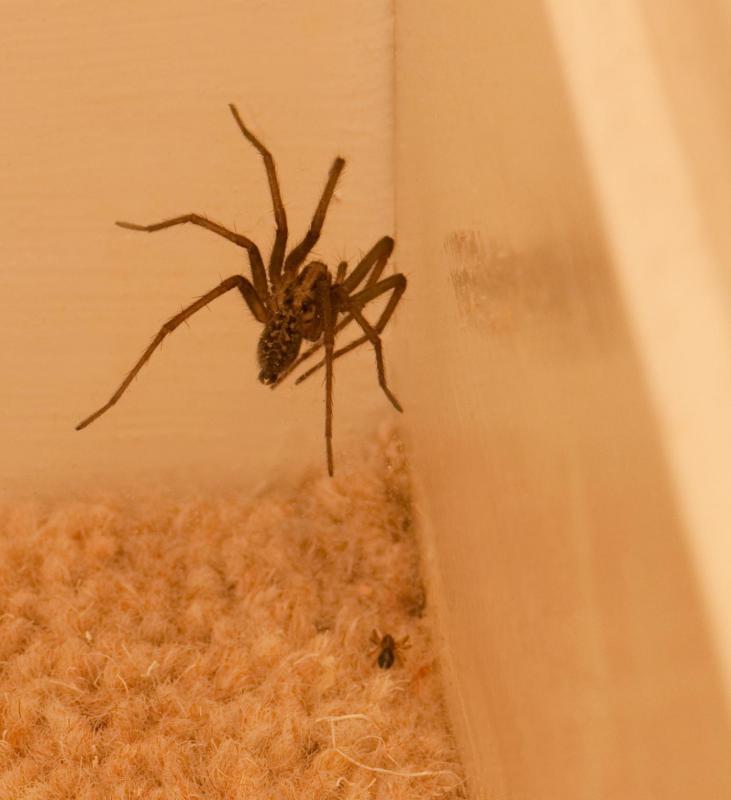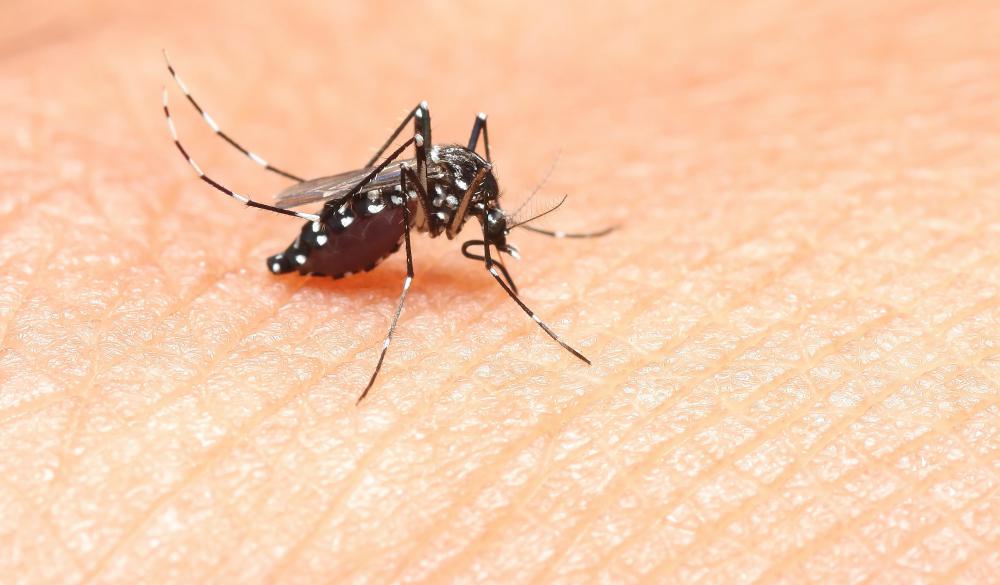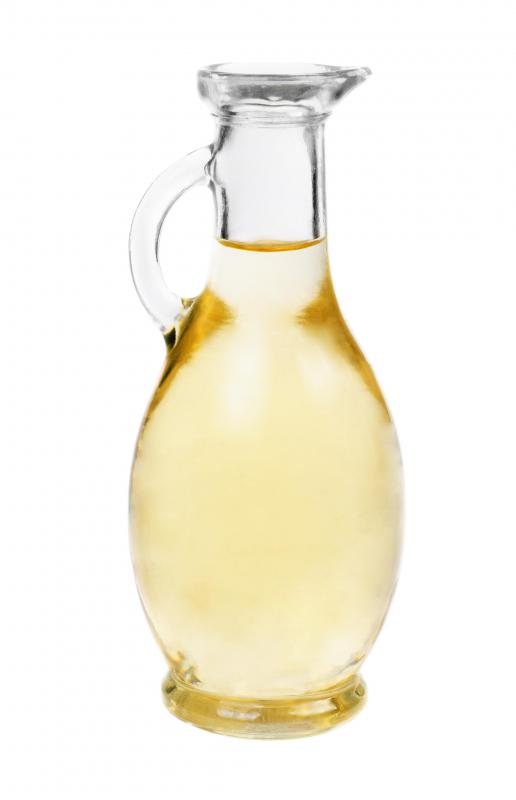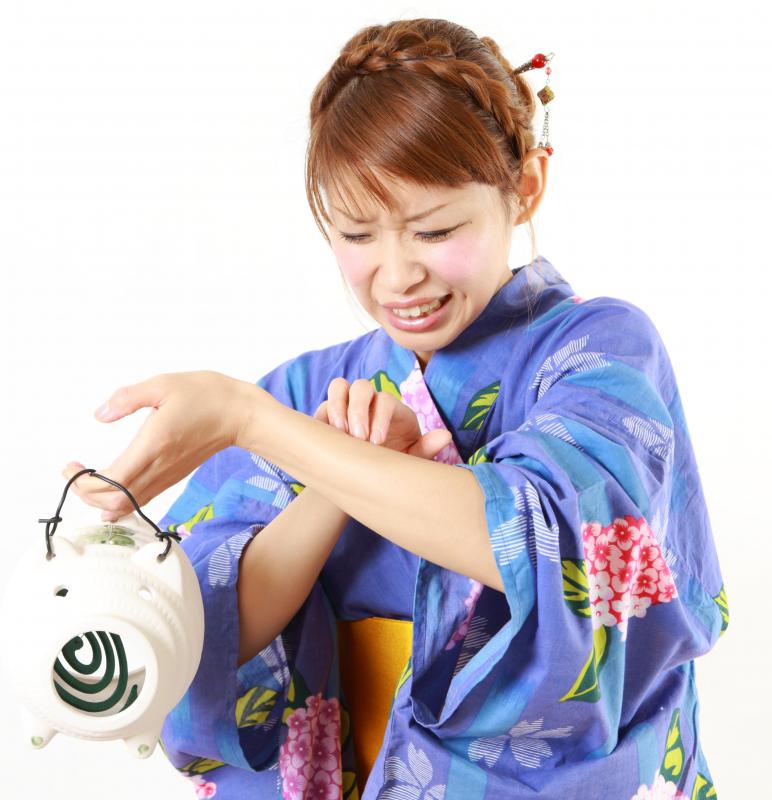At TheHealthBoard, we're committed to delivering accurate, trustworthy information. Our expert-authored content is rigorously fact-checked and sourced from credible authorities. Discover how we uphold the highest standards in providing you with reliable knowledge.
What are the Best Treatments for Insect Bites and Stings?
Insect bites and stings can be quite annoying, painful, and potentially hazardous to a person's health. Bugs thrive in virtually every environment that is inhabitable by humans, and people all over the world are susceptible to ant, spider, and mosquito bites, as well as bee and wasp stings. The most common treatments for various insect bites and stings include thoroughly washing the afflicted skin, applying topical ointments and creams, and taking antihistamine medications. In some cases, severe allergic reactions and other potentially serious medical conditions can result from being bitten or stung. An individual who experiences significant pain and swelling should seek immediate medical attention.
Bites from ants, spiders, and mosquitoes usually cause the presence of itchy red bumps within a day or two. Medical professionals usually agree the best initial treatment is to cleanse the bite with water and mild soap to prevent further infection. Topical lotions and ointments that contain calamine can be used to relieve itching and irritation. Over-the-counter hydrocortisone solutions are usually effective at relieving itching and irritation for most types of insect bites. Individuals who still suffer from itchy, swollen skin can take antihistamine pills and antibiotics to help relieve symptoms.

Bee and wasp stings are usually very painful, and swelling on and around the sting can appear within minutes of an incident. A bee's stinger can break off in the person's skin and release venom into the body. When a person is stung, he or she should attempt to carefully remove the stinger from the skin to stop more venom from entering the wound. The area should be washed with soap and water, and scratching the sting should be avoided to prevent infection. Swelling can be reduced by applying ice packs, and itching and irritation are commonly relieved with topical hydrocortisone creams and oral antihistamines.

Insect bites and stings are not usually serious enough to require medical care, although individuals who are stung or bitten repeatedly, or those who have allergic reactions to insect toxins, may experience severe symptoms that necessitate a trip to the emergency room. In addition, mosquitoes in some parts of the world can transmit dangerous diseases to humans when they bite, such as malaria or the West Nile virus. People who develop severe rashes, fever, nausea, or extensive swelling as the result of insect bites and stings should go to a hospital immediately so doctors can make a proper diagnosis and administer the appropriate treatment.
AS FEATURED ON:
AS FEATURED ON:

















Discussion Comments
Bed bug bites are absolutely awful. They come in threes, I think because the bug typically bites then crawls a little way and bites again. They stay itchy for days.
What's even worse is knowing the bugs are there, and not being able to get rid of them.
Removing a bed bug infestation is really hard so the best treatment is to not get them at all. Don't share bedding or clothes and you should be fine.
I've heard that the best way of removing a bee or wasp stinger is to scrape it off the skin using a butter knife or a long fingernail. The end of the stinger often has a small sac of the venom and if you try to grip it with tweezers, you will squeeze more venom into the sting.
I've heard that vinegar is best for wasp stings and baking soda for bee stings. But I think time is the only thing that will really take the sting away.
Post your comments